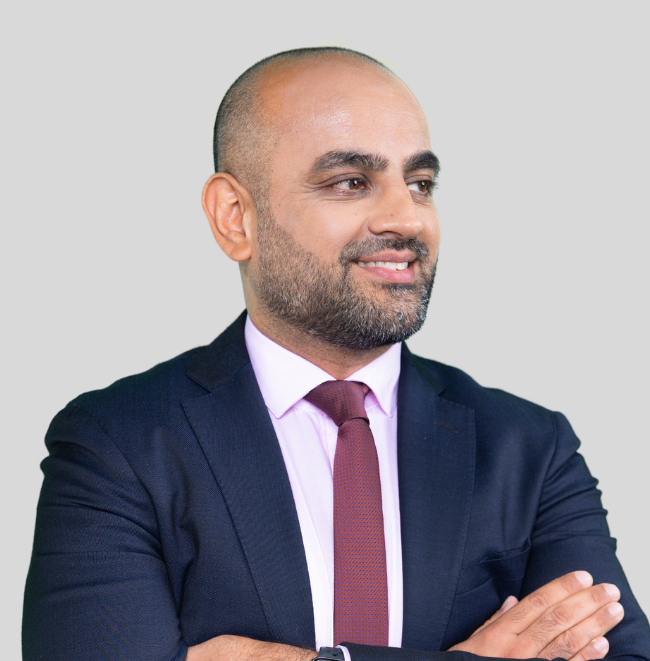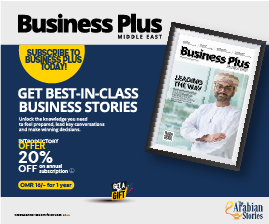Steady growth in Oman’s insurance sector has been further fuelled by mandatory insurance requirements, such as motor insurance and employer-sponsored health plans, which have led to a large and stable pool of customer base, observes Addal Sarwar, Group Chief Personal Lines Officer of National Life and General Insurance Company (NLGIC).
“Oman’s insurance sector has good growth prospects, thanks to a growing market, the improving economy, increased awareness of insurance products and growth fuelled by Oman’s mandatory insurance requirements… There is great potential for innovative insurance and digital insurance solutions, which will register positive growth in the days to come,” Sarwar tells Business Plus, summing up the sector’s potentials in Oman.
Although insurance density is lower than expected in the region at the moment, there is a growing awareness among individuals and businesses, he maintains, noting that this growth is commensurate with people becoming more informed about the benefits of insurance.
Highlighting NLGIC’s involvement in building awareness, he explains: “As a leading insurance player, we have a major role in raising awareness and in helping individuals and businesses understand the risks they face and the need for adequate protection. Through targeted campaigns, partnerships and educational initiatives, we can effectively communicate the importance of insurance and the financial security it provides. As awareness continues to rise and the demand for protection products increases, we are committed to being at the forefront of this positive change, offering reliable and comprehensive insurance solutions to our customers.”

NLGIC is the largest insurer in Oman, offering a wide range of insurance solutions with an ever-expanding geographical reach and branches in Dubai, Abu Dhabi and Kuwait.
Last year, NLGIC completed a strategic deal with RSA ME to form a combined larger entity as NLGIC Group. With this deal, NLGIC Group would expand its products offerings in the life, health and a wide range of personal lines and commercial lines general insurance products along with the expansion of its geographic reach into newer potential markets like Bahrain, Saudi Arabia and Qatar. This strategic transaction would position it as a leading multi-line, multi-country insurer, ranking within the top 10 insurers in the region.
Commenting on NLGIC’s credentials as a leader in the insurance industry, Sarwar states: “At the NLGIC Group we are driven by our purpose to ‘instil confidence in people to live the life they want, well prepared for the unexpected’ and we will achieve this purpose by ‘creating a beyond-insurance ecosystem that has customer needs at the core’. This will be the North Star for the long-term success of the organisation. Our ambition is to be a leading regional multi-line insurance company delivering value to customers, beyond insurance, and sustainable and profitable earnings to our shareholders. To achieve the purpose and ambition, our four strategic pillars that will bring together the best of both companies and set out a clear pathway are:
- Market-leading multi-line, multi-country and multi-segment insurer
- Modular and agile business platform
- Differentiated customer proposition and experience
- Diversification into non-insurance services through partnerships and vertical integration.”
Having more than 80 years of business operation with a combined employee strength of 1,200 and a customer base of more than 1.5 million in the region, the NLGIC Group is on a mission to redefine insurance for today’s new realities with an ambition to be a leading regional multi-line insurance company, delivering value to its customers and sustainable and profitable earnings to its shareholders, with a customer-centric approach.
“What distinguishes us is our commitment to digital solutions, embedding digital technologies into our processes to streamline operations, enhance efficiency, and provide a seamless customer journey. Our digital solutions enable customers to interact with us anytime, anywhere and through any of our digital touchpoints like user-friendly mobile app, website, chatbot or our 24×7 bilingual call centre or any of our physical service/touch locations. Alongside our digital focus, our dedicated team is trained to listen to our customers, address their queries promptly and provide expert guidance throughout their insurance journey,” states Sarwar.
With a team of well-trained insurance professionals, NLGIC offers a wide range of bespoke insurance solutions, including personal lines’ products such as vehicle insurance, life and health insurance, home and travel insurance. It also offers commercial insurance solutions tailored to the needs of businesses and organisations, and risk management services to help customers identify and mitigate potential risks and avail recommendations on risk reduction strategies.
“We have developed user-friendly digital tools and platforms to make insurance more accessible and convenient for our customers. Through our online portal, customers can easily manage their policies, make premium payments, initiate claims and access relevant policy information. Our claims team is trained to guide customers through the claims process, ensuring it is smooth and efficient,” he states.
However, like every business, there are challenges in the insurance sector too. Listing them, Sarwar explains: “Some of the key challenges we face include intense competition, with numerous players vying for market share. Then we have an evolving regulatory environment landscape; compliance with changing regulations and ensuring adherence to industry standards can be challenging. Another challenge is assessing and efficient pricing, while maintaining profitability.”
Besides, economic fluctuations and market volatility also impact the insurance industry. “Changes in interest rates, inflation and investment performance can pose challenges in managing financial stability, underwriting risks, and pricing policies appropriately. We closely monitor market trends and adjust our strategies accordingly to mitigate these challenges… And while embracing digital solutions is crucial, implementing and integrating new technologies can be complex and resource-intensive,” says Sarwar.
Nevertheless, the growing digital ecosystem has greatly benefited insurers and enhanced their experiences, he maintains. “Today, policyholders enjoy the convenience of accessing insurance information, purchasing policies online, filing claims digitally and receiving prompt updates. These advancements have personalised the insurance journey and made it more convenient for customers.
“Additionally, the abundance of data made available through digital technologies has empowered insurers with valuable insights. Through sophisticated analytics and machine learning tools, we can extract meaningful information from diverse data sources. This enables us to make data-driven decisions, such as identifying risk patterns, detecting fraudulent activities, and creating customised products. The ability to leverage such insights has proven instrumental in our quest for effective risk assessment and tailored pricing strategies.”




